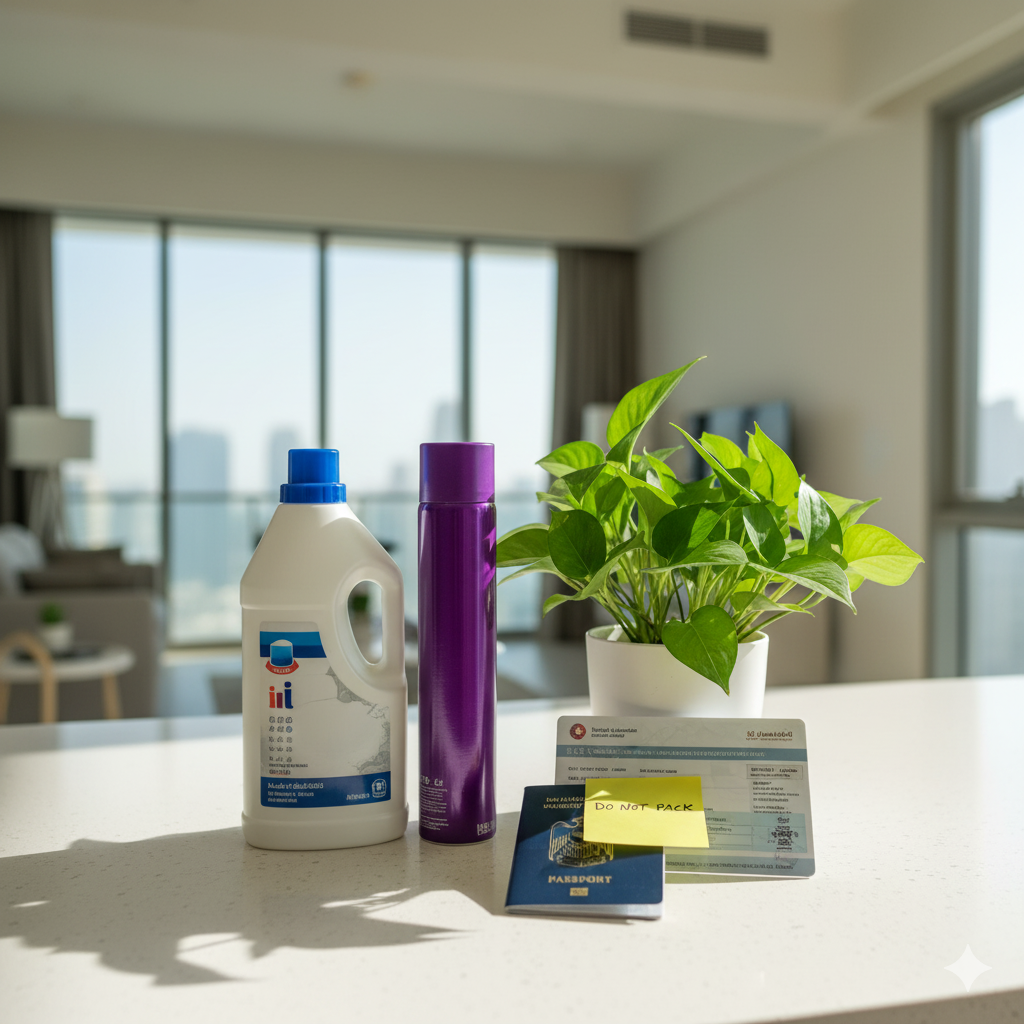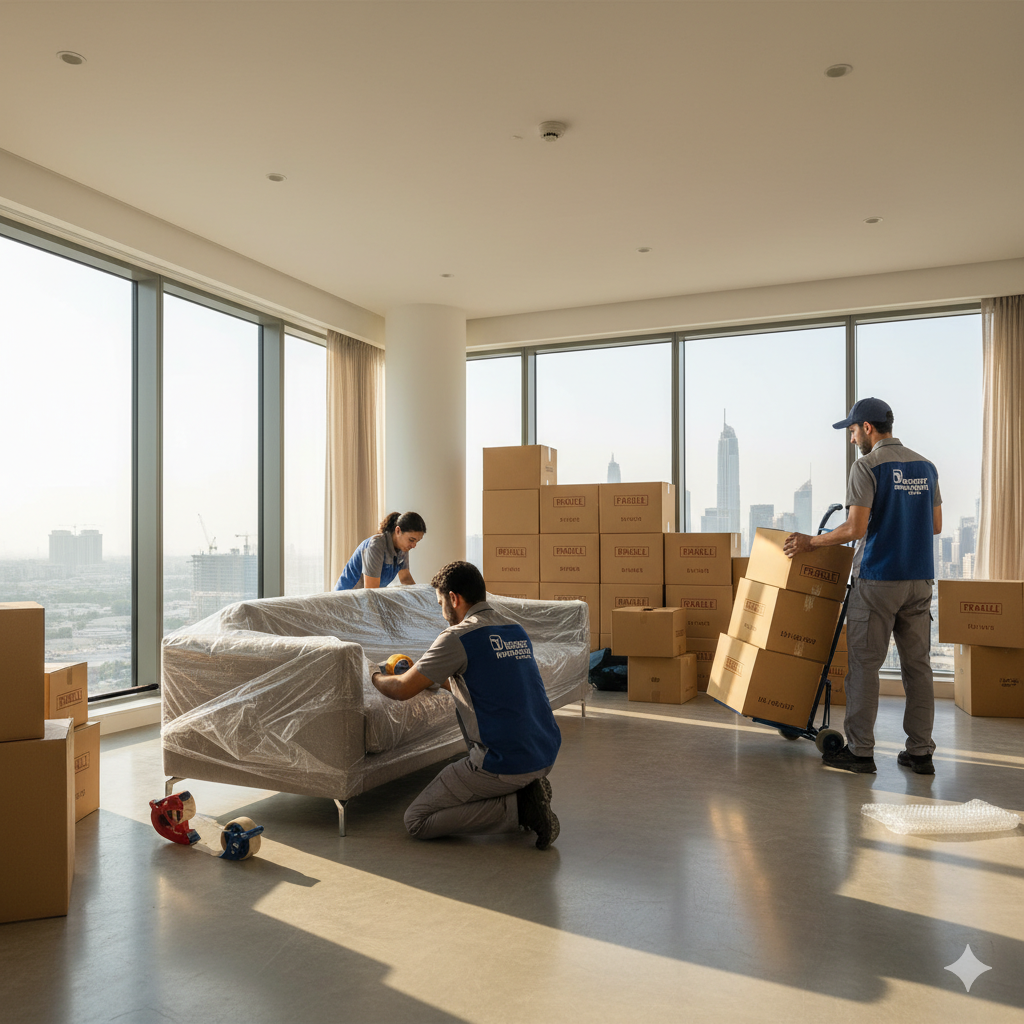It’s the million-dirham question when you’re planning a move: can you really just hand over the keys and let the professionals handle everything? The idea of a team swooping in to box up your entire life is the ultimate moving dream. But is it reality? Let’s get straight to it.
The Short Answer: Almost, But Not Quite

The 95% Rule
Yes, professional packers and movers are equipped to pack about 95% of a standard household. They’ll handle your furniture, kitchenware, clothes, electronics, and decor. However, for critical safety, legal, and insurance reasons, there’s a small but crucial list of items they cannot pack. Think of things that are hazardous, perishable, or irreplaceable.
What Professional Movers Will Pack for You
When you hire a full-service moving company, you can expect them to bring the materials and expertise to securely pack the vast majority of your belongings. Their teams are trained to handle everyday items and more.
Here’s a snapshot of what’s typically covered:
- Furniture: Sofas, beds, tables, chairs, and cabinets (often includes disassembly and reassembly).
- Kitchenware: Dishes, glasses, pots, pans, and small appliances.
- Clothing & Linens: Clothes from closets, bedding, and towels.
- Electronics: TVs, computers, sound systems, and lamps.
- Books, Toys, & Decor: Everything from your library to your kids’ playroom.
- General Household Goods: Basically, anything that isn’t on the “do not pack” list below.
The Official “Do Not Pack” List: Items Movers Legally Cannot Move
This is the most important part to understand. For your safety and theirs, every professional moving company has a list of non-allowable items. Here’s what you’ll need to handle yourself.
1. Hazardous & Flammable Materials
This is the biggest category and it’s non-negotiable. Moving trucks are not equipped to transport dangerous goods, and doing so can void insurance and break the law. Even a small leak can have disastrous consequences in an enclosed space.
- Think of anything that could catch fire, explode, or corrode:
- Aerosol cans (deodorant, hairspray, cleaning sprays)
- Paints and paint thinners
- Gasoline, kerosene, propane tanks (even if you think they’re empty)
- Fertilizers, pesticides, and weed killers
- Cleaning supplies like bleach and ammonia
- Batteries (especially car batteries)
- Fireworks or ammunition
For a more detailed understanding of what falls under this category, you can refer to the definition of a Hazardous substance on Wikipedia.
2. Perishable Items
This one is more about practicality. A moving truck is not a refrigerator, and items can spoil, attract pests, or create a terrible mess during transit, especially in the UAE’s climate.
- This includes:
- Refrigerated or frozen food
- Fresh produce and open food containers
- House plants (many companies will not move them due to the risk of damage or pests)
It’s best to plan on consuming, donating, or properly disposing of Perishable food before moving day.
3. High-Value Personal Items & Documents
This isn’t about the movers not being trustworthy; it’s about liability and common sense. These are items that are either irreplaceable or have a value that can’t be easily quantified by insurance. You should always keep these with you personally.
- Keep a “Do Not Move” box for:
- Cash, credit cards, and checkbooks
- Jewelry, watches, and precious heirlooms
- Prescription medications
- Laptops, phones, and external hard drives with sensitive data
- Important Personal documents like passports, visas, wills, property deeds, and financial records.
Why Reputable Movers in Dubai Have These Restrictions
It might seem like a hassle, but these rules are a sign you’re dealing with a professional company. Reputable movers and packers in dubai adhere to these standards for three key reasons:
- Safety: To protect your belongings, the moving crew, and the public from potential hazards.
- Insurance: Their insurance policies explicitly prohibit the transport of non-allowable items. If something goes wrong involving a prohibited item, your entire shipment might not be covered.
- Legal Compliance: Transporting hazardous materials requires special licenses that standard moving companies do not have.
Ultimately, a team of expert Packers and movers dubai like Desert Movers Dubai prioritizes a safe and secure relocation above all else.
✍️ A Story from the Field: The “Forgotten” Box
I’ve been in this business for over 20 years, and I’ll never forget one particular move. We were packing up a large villa in Jumeirah. The client was fantastic, super organized. We packed the whole house, loaded the truck, and were ready to go. Just as we were leaving, the client’s wife ran out, looking panicked. She asked, “Did you pack the small wooden box from the top of the study closet?” We had. Turns out, it contained all their passports and their son’s birth certificate. We had to stop, unload three tiers of boxes to find it. It taught me a valuable lesson I share with every client now: The day before we arrive, pack a suitcase and one “essentials” box with everything you can’t live without, and put it in your car. It removes all the stress.
Frequently Asked Questions About Packing Services
What should I do with the items movers won’t pack?
Plan ahead. Use up perishable foods. Take hazardous materials to a designated municipal waste facility. And most importantly, pack a personal vehicle with all your valuable and essential items to transport yourself.
Can I pack some things myself to save money?
Absolutely. Many companies offer partial packing services. You can pack non-fragile items like books and clothes, and let the professionals handle the delicate items like your kitchenware and electronics. It’s a great way to control your budget.
Do I need to empty drawers before the movers arrive?
It depends. For lightweight items like clothing in a sturdy dresser, you can often leave them. But for dressers that are heavy, old, or fragile, it’s best to empty them. It’s also critical to remove anything that could break, spill, or roll around, as well as any of those personal/valuable items we talked about. Always best to ask the moving company for their specific policy.



